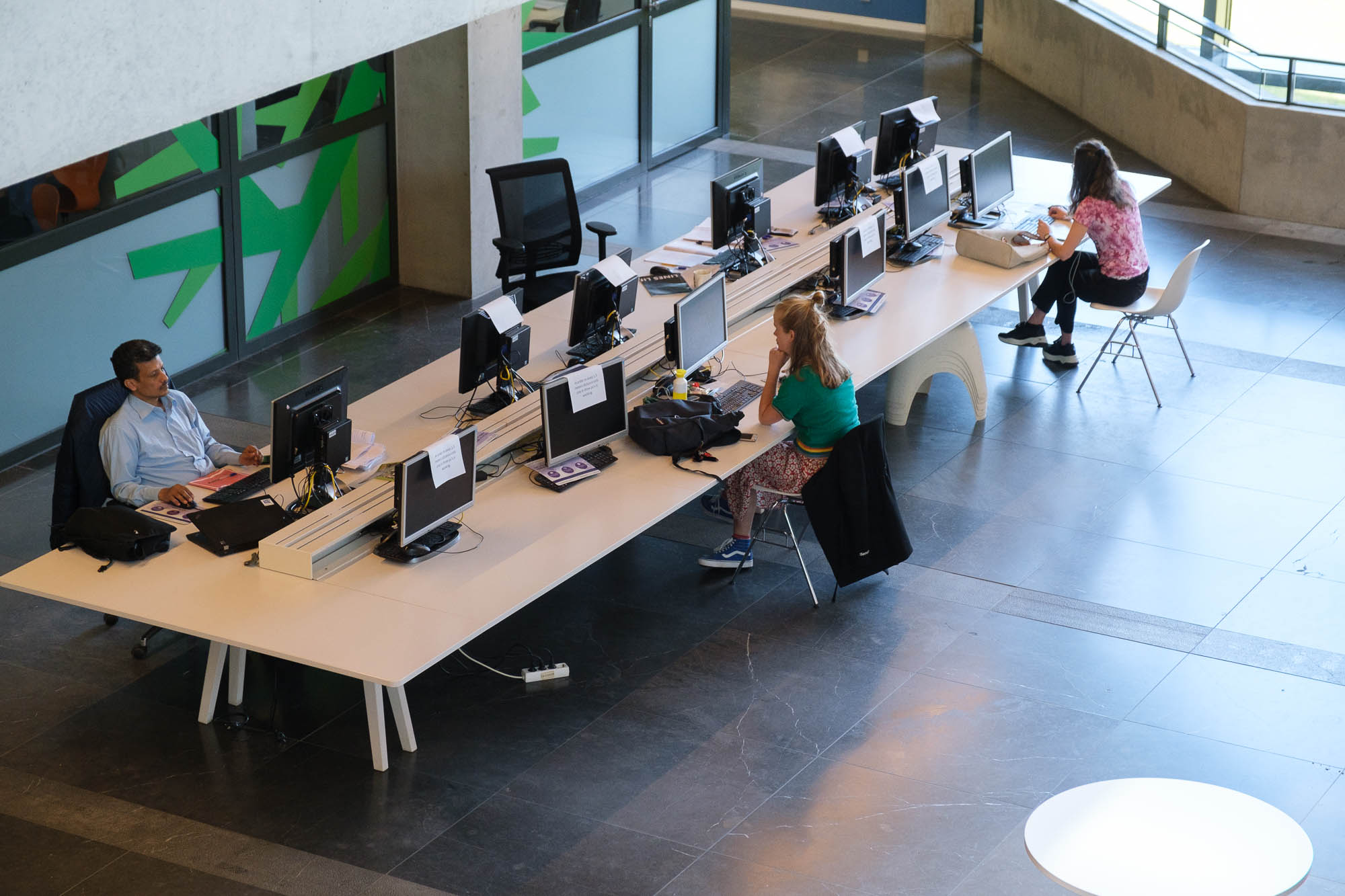Wageningen researcher Quirine ten Bosch studies how we contract corona in closed spaces and what we can do to prevent this.
The one-and-a-half metre rule and routing are used in shops and office buildings in an effort to help fight the corona epidemic. Specialists expect us to become increasingly lax in adhering to the measures, but what effect this will have on the spread of COVID-19 is hitherto unknown. This is what Quirine ten Bosch, researcher at WUR Quantitative Veterinary Epidemiology, aims to find out.
Monitoring
Ten Bosch will use a crowd-monitoring system to map the interaction between people in closed spaces. These systems are digital sensor networks that monitor the movement of pedestrians in order to establish how many people are present in any given space and how much distance is between them. This data is then entered into a model that simulates pedestrian movements, and which is linked to a transmission model that mimics the spread of COVID-19 in a space. This will show how people’s behaviour impacts the spread of corona.
Feyenoord
Where this research can be carried out is still under discussion. Options are the Feyenoord football club and TU Delft. She collaborates with the Smart Distance Lab, that measures human behaviour during an exposition in the Kromhouthallen in Amsterdam. The study is funded by ZonMw, the Dutch organisation for health research.

 Corana maatregelen
Corana maatregelen